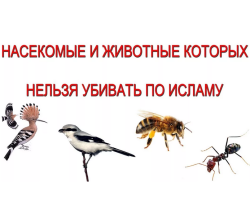If your pet behaves quite unusual and not quite understandable signs and symptoms appear, it is perhaps we are talking about sending.
Content
When your dog breathes heavily, becomes sluggish and looks with sad eyes-it is possible that he was poisoned with something. Either he grabbed something from the ground during a walk, or people tried. One thing is clear, the dog needs to be treated urgently.
Dog poisoning: Causes
Possible causes of poisoning in the dog:
- Unexpressive food. Do not give the dog what has spoiled, and you yourself are afraid to eat. Their stomachs are also not intended for such food.
- Non -compliance with the rules for storing poisons or household chemicals. Any of such funds can be poisoned. Therefore, they need to be stored tightly closed and in a place where there is no access.
- An overdose of drugs. Sometimes the owners give the dog the drugs "by eye" or based on a dose designed for a person. This cannot be done, you need to follow the instructions.

- Poor -quality dry food with an unknown composition or its improper storage.
- "Independent" walking of the dog, which is released into the street without a leash. She can grab a poor -quality or poisoned product from the garbage, chew poisonous grass, become a victim of a bite of a poisonous insect.
- Errors in the diet of the animal: insufficient amount of food or its unbalanced. In particular, a large number of proteins in the dog’s diet may also lead to the development of intoxication and, as a result, to problems in the work of internal organs.
Dog poisoning: Signs
With poisoning, the following symptoms are rapid:
- The dog refuses to eat
- She often drinks water
- She has frequent diarrhea
- Periodically arising convulsions
- Abundant salivation
- The dog is overexcited or weakened
- Breathing intermittent and frequent

Chemical poisoning of the dog differs from food. It is characterized depending on the fact that it was the dog swallowed, the following symptoms:
- Fever and bloody diarrhea are characteristic of rat poison
- The appearance of garlic smell from the mouth indicates the presence of arsenic in the body
- The anti -TB drug isoniazide causes increased sensitivity in dogs and can cause vomiting with the presence of whitish foam and bloody impurities, coordination is disturbed. These signs are somewhat similar to enteritis, so only the veterinarian can determine the cause of the disease.
- Perhaps frequent urination or reverse phenomenon - the dog practically does not urinate, which indicates that renal failure is developing.
- In especially severe cases, a sharp drop in temperature is not excluded.
How to treat poisoning in a dog?
Dog poisoning treatment:
- If the dog is bitten by a poisonous insect or a snake - cool the place of the bite as soon as possible, which will lead to narrowing of the vessels and relieve symptoms. The next step is the immediate delivery of the animal to a specialist who will determine the appearance of the poison that has entered the body and selects the necessary antidote.
- If the dog fell into the zone of poisonous substances and inhaled them, you need to urgently move it into an uninfected zone, give it pure water. It will also not hurt to wash the dog to remove possible toxins that could get to the wool. Just do not use any shampoos or soap to avoid the possible occurrence of poisonous vapors as a result of a reaction with toxins.
- If a the dog was poisoned Anabazin immediately rinse her stomach with activated coal and give a saline laxative.
- To bring aniline, you need to put the dog out into the street and give it cold milk or strong tea, attach a cold compress to the face.
- With atropine poisoning, multiple gastric lavage is necessary, the use of laxatives and adsorbents. After you can give her strong sweet tea.

If the dog swallowed the poison, it is urgent to provoke vomiting from her. To do this, you can use the following solution: pour about 40 g of salt with a glass of water, better boiled. The dose is calculated as 5 ml of such a mixture for every 10 kg.
You can also give it a mustard prepared in the form of a solution in similar proportions, but give at the rate of 1 tablespoon for 3 kg. In the same dose, hydrogen peroxide with water taken in equal proportions is also given. A weak solution of potassium permanganate is also suitable. In extreme cases, you can give a pets soda or salt in its pure form with a spoon, stroking it along the throat.
This method is not suitable if the dog was poisoned acid, alkali or any of the products of oil refining. So you can cause her additional burial esophagus burns. Therefore, urgently bring the dog to the veterinarian, but before that, pour into the animal liter one and a half water in which dissolve the adsorbent. Let's also adsorbents with any poisoning. Use activated charcoal, enterosgel, etc. for this. And again, transport the dog to the clinic.

- If you poison with isoniazid, remove toxins with the above methods and enter the dog into a vein up to 50 ml of a tool such as pyridoxine (1%), or make intramuscular injection (in this case, the dose is 1 ml). Contact the veterinarian.
- The swallowed rat poison is dangerous with internal bleeding, therefore, urgently introduce intramuscularly Vikasol in the form of a solution and immediately contact a veterinary clinic.
If a the dog was poisoned Poor meals, be sure to hold it on a full diet, and after gradually begin to give light food in the form of low -fat boiled meat, oatmeal, yogurt, cottage cheese.
The main treatment of the dog is carried out by a veterinarian, and you must provide proper care during the rehabilitation period. To do this, clearly fulfill all the doctor's prescriptions.
How to avoid poisoning in a dog?
- Do not give the dog poor -quality food and store it in accordance with the recommended storage conditions.
- Do not leave her during a walk unattended and if you see that she eats something-provoke vomiting, and feed at home with adsorbents.
- Do not allow the dog to take food from strangers.
- Do not walk near garbage containers.
- Drugs and household chemicals should be stored outside the dog access zone.
- If poisoning nevertheless happened, your actions should be lightning fast. The sooner the veterinarian examines the dog, the easier and more successfully the treatment and recovery will be.








I do not know what to do. Our dog is not tearing for no first day (
Lyudmila, why are you pulling? Urgently contact the veterinarian. Maybe something serious in your dog. I try if the dog is just beginning to immediately provide help with help, or more precisely, I begin to give Enterozoo, since this is an enterosorbent to eliminate all harmful substances from the body of the dog and other animals.
Oh, we also periodically have poisoning in a dog (
Irina, what do you give? For example, I give the mentioned Enterozoo the dog above. And I know that this remedy removes toxins with feces, but it does not remove useful substances from the body of the dog.